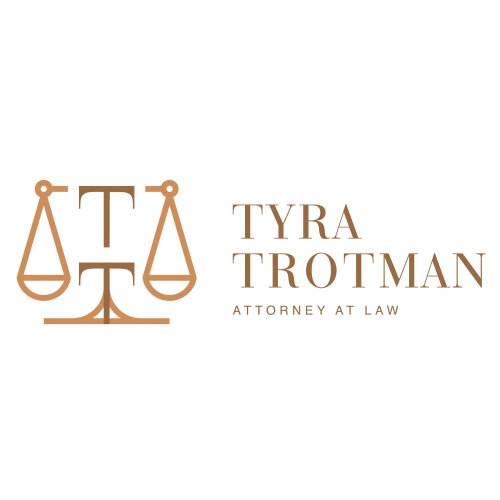Best Nursing Home Abuse Lawyers Near You
Share your needs with us, get contacted by law firms.
Free. Takes 2 min.
Or refine your search by selecting a city:
List of the best lawyers
About Nursing Home Abuse Law
Nursing home abuse law is an area of legal practice that focuses on protecting the rights and well-being of residents in nursing homes and long-term care facilities. Abuse can take many forms, including physical, emotional, financial, and neglect. Legal actions may be pursued to hold the responsible parties accountable and to seek compensation for injuries or suffering endured by the victims.
Why You May Need a Lawyer
There are several situations where individuals might require legal assistance related to nursing home abuse:
- If a resident has suffered serious injuries or health deterioration due to negligence or abuse.
- If there are signs of physical abuse, such as unexplained bruises, burns, or fractures.
- If financial exploitation is suspected, including unauthorized use of a resident's funds or identity.
- If emotional or psychological abuse is affecting the mental health of a loved one.
- If there is a failure to provide essential care, leading to malnutrition, dehydration, or other health concerns.
- If there is a discovery of unsafe or unsanitary living conditions that have gone unresolved.
- If you are facing intimidation or retaliation for reporting concerns to the facility.
Local Laws Overview
The specific laws regarding nursing home abuse can vary by locale, but there are key aspects that are generally applicable:
- Regulations and standards for nursing home care are often dictated by both federal and state laws, including the Nursing Home Reform Act.
- Many states have mandatory reporting laws requiring healthcare professionals and other designated individuals to report suspected abuse.
- Statutes of limitations may apply, limiting the timeframe within which a legal action can be filed.
- Victims or their families may have the right to compensation for damages through civil lawsuits.
Frequently Asked Questions
What constitutes nursing home abuse?
Nursing home abuse can include physical harm, emotional and verbal abuse, sexual assault, financial exploitation, and neglect of basic care needs.
How can I identify signs of abuse?
Common signs include unexplained injuries, sudden changes in behavior, poor hygiene, untreated medical issues, and withdrawal from social interactions.
Who can be held responsible for nursing home abuse?
Responsible parties might include staff members, administrators, or the facility itself, depending on the circumstances of the abuse.
What should I do if I suspect abuse?
Report your suspicions to the facility management and appropriate authorities, such as the state health department or a designated elder abuse hotline. Document any evidence and consult a lawyer experienced in nursing home abuse cases.
Can I file a lawsuit against a nursing home?
Yes, if you have sufficient evidence to demonstrate that abuse or negligence occurred, you may be able to file a civil lawsuit seeking compensation for damages.
What is the time limit for filing a lawsuit?
The statute of limitations varies by state but typically ranges from one to three years from the date of the incident.
How can a lawyer help with my case?
A lawyer can help gather evidence, identify responsible parties, navigate complex legal procedures, and advocate for the victim's rights to secure just compensation.
What compensation can be obtained in a lawsuit?
Compensation may include medical expenses, pain and suffering, punitive damages, and other related costs.
Are there alternative dispute resolutions available?
Yes, in some cases, mediation or arbitration may be pursued as an alternative to a court trial to reach a settlement.
Is legal aid available for victims of nursing home abuse?
Some organizations and legal aid societies may offer free or sliding-scale legal services to victims of nursing home abuse.
Additional Resources
Several resources can provide support and information regarding nursing home abuse:
- The National Center on Elder Abuse (NCEA) provides information and resources on elder abuse, including nursing home abuse.
- The Long-Term Care Ombudsman Program offers advocacy and support for residents of nursing homes.
- State health departments and elder abuse hotlines are important points of contact for reporting and addressing abuse.
Next Steps
If you need legal assistance in a suspected case of nursing home abuse, consider taking the following steps:
- Document all relevant information and evidence related to the suspected abuse.
- Contact the appropriate authorities to report your concerns.
- Reach out to a qualified attorney specializing in nursing home abuse for legal evaluation and representation.
- Explore local resources and watchdog organizations for additional guidance and support.
Lawzana helps you find the best lawyers and law firms through a curated and pre-screened list of qualified legal professionals. Our platform offers rankings and detailed profiles of attorneys and law firms, allowing you to compare based on practice areas, including Nursing Home Abuse, experience, and client feedback.
Each profile includes a description of the firm's areas of practice, client reviews, team members and partners, year of establishment, spoken languages, office locations, contact information, social media presence, and any published articles or resources. Most firms on our platform speak English and are experienced in both local and international legal matters.
Get a quote from top-rated law firms — quickly, securely, and without unnecessary hassle.
Disclaimer:
The information provided on this page is for general informational purposes only and does not constitute legal advice. While we strive to ensure the accuracy and relevance of the content, legal information may change over time, and interpretations of the law can vary. You should always consult with a qualified legal professional for advice specific to your situation.
We disclaim all liability for actions taken or not taken based on the content of this page. If you believe any information is incorrect or outdated, please contact us, and we will review and update it where appropriate.
Browse nursing home abuse law firms by country
Refine your search by selecting a country.
















